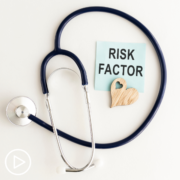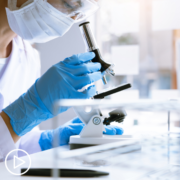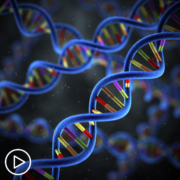How Biomarkers Might Impact Future Stomach Cancer Care?
How Biomarkers Might Impact Future Stomach Cancer Care from Patient Empowerment Network on Vimeo.
How might biomarkers impact the future of stomach cancer care? Expert Dr. Joo Ha Hwang from Stanford Medicine discusses the status of biomarkers in gastric cancer research and how gastric cancer screening and health outcomes in the U.S. compare to the rest of the world.
See More from [ACT]IVATED Gastric Cancer
Related Resources:

|

Can Stomach Cancer Risk Be Reduced by Treatment and Lifestyle Changes? |

What Stomach Cancer Care Obstacles Do Asian and Latinx Patients Face? |
Transcript:
Lisa Hatfield:
Dr. Hwang, can you speak to emerging biomarkers for early gastric cancer that have shown the most promise in your research? And how might these biomarkers influence future therapeutic strategies and outcomes for gastric cancer patients?
Dr. Joo Ha Hwang:
Yeah, it’s still very, very early days for biomarkers in the field of gastric cancer. Unlike other more prevalent tumors in the United States, and this has to go towards funding for research. Gastric cancer research has been fairly underfunded in the United States. The incidence of gastric cancer is not low, actually. There’s a lot more research in esophageal cancer and Barrett’s esophagus, but actually the prevalence or the incidence of esophageal cancer is much lower than stomach cancer.
So, fortunately the funding environment is slowly starting to change. There are active studies ongoing, both in the United States and abroad on looking at biomarkers. But I would say it’s too preliminary to even suggest that there are any specific biomarkers out there that might help to detect early gastric cancer.
And that’s either by tissue biopsy or anything that might be in the blood. But it will come, I mean, it’s coming for other diseases like colon cancer. So I’m confident that eventually we’ll see biomarkers come for detection of early gastric cancer, and we really need these biomarkers, or we need to be doing something because right now outcomes in the United States for gastric cancer are some of the worst in the world because we really don’t do anything for gastric cancer.
For example, the five-year overall survival for gastric cancer, if you’re diagnosed to it within the U.S., is only 30 percent. But if you’re in Korea, Japan, the overall five-year survival is somewhere close to 70 percent. And the single reason for that is the stage of diagnosis. Japan and Korea have screening programs to detect early gastric cancer, and in the United States we really don’t do anything. And so there’s a lot of ground that can be made up. And what’s frustrating for me is that this is a very curable cancer. And there are pre-malignant conditions that we know of that we can survey for, but right now the general policy in the United States is don’t do anything. So we really need to change that.







